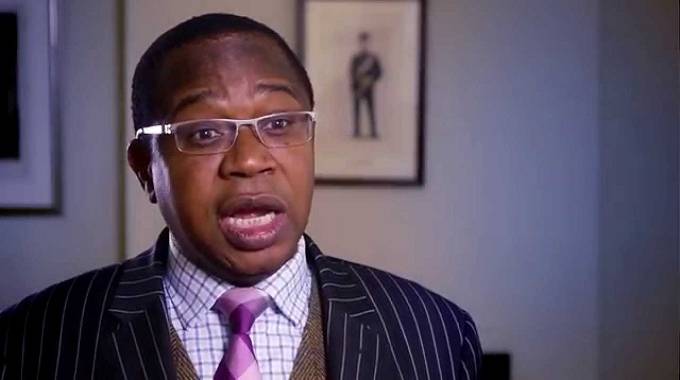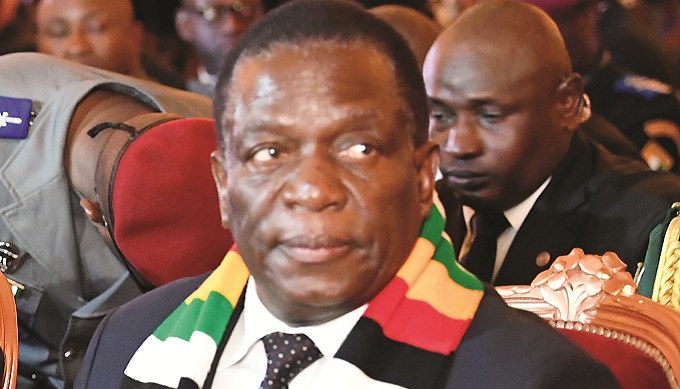EDITORIAL COMMENT: International community should continue supporting Zim

ZIMBABWE recorded some key interventions this week which have a potential to stabilise the economy and give it much needed breathing space while Government seeks more solutions to the challenges confronting it.
On Tuesday, Britain said it would support Zimbabwe to get on to an interim IMF staff programme to help the country quickly clear its foreign arrears. This is critical because clearing the $1.8 billion in arrears to the World Bank and African Development Bank is a major step for Zimbabwe to start accessing foreign credit, especially for the private sector as well as Foreign Direct Investment.
Outgoing British Ambassador to Zimbabwe, Catriona Laing said an International Monetary Fund (IMF) programme would help the country expedite the clearance of its arrears.
“We are here to give that support to try and encourage a process back to an IMF programme, perhaps through an interim staff monitoring programme as soon as possible,” Ms Laing told reporters after meeting Finance and Economic Development Minister Professor Mthuli Ncube. She said this would enable Zimbabwe “to start a serious dialogue” around the clearance of the arrears.
Prof Ncube said Government was still deciding whether to follow the Highly Indebted Poor Country route or a commercial deal to clear the arrears.
Only then will it come up with a timeline to pay the arrears, he said, adding that he would launch an economic stabilisation programme next month. The Transitional Economic Stabilisation Programme is expected to set the tone for the attainment of a middle-income economy by 2030.
Prof Ncube said they would be going to Bali, Indonesia next month for the World Bank meetings and further conversations around the arrears clearance issue would be held. In another development, Zimbabwe secured a US$250 million line of credit from Gemcorp Capital, an international independent investment management firm focused on emerging markets, for the importation of essential commodities.
The five-year loan facility will enable the importation of essential and intermediate goods to support the economy. Government has welcomed the development saying granting of the facility by Gemcorp is a strong signal by foreign investors of their growing confidence in Zimbabwe and it expects more investors to follow suit.
It said the line of credit came at an appropriate time to shore up foreign currency liquidity after the end of the tobacco selling season. In his State of the Nation Address (SONA) to a joint sitting of the House of Assembly and Senate on Tuesday, President Emmerson Mnangagwa also made a number of critical pronouncements on measures being taken to stabilise and grow the economy.
Top of the list was a $500 million in foreign credit facilities which Government has secured to ease the cash crisis that has affected the smooth operations of local industries. The President said the money would be disbursed this week to meet growing demand by the productive sectors so as to bolster quick economic transformation and help ease the liquidity challenges.
“In order to bring sanity in the foreign currency market, my Government through the Reserve Bank of Zimbabwe, has negotiated a number of foreign exchange facilities amounting to US$500 million that are intended to meet the growing demand for foreign currency by business and the public in general.
Some of these facilities shall be disbursed this week to meet the expanding demand for foreign currency that continues to be sustained by fiscal imbalances, which my Government has made a great commitment to redress,” said President Mnangagwa.
He ruled out a quick return to use of the Zimbabwe dollar saying his Government would maintain use of the multi-currency system until the current negative economic fundamentals have been addressed to give credence to the introduction of the local currency.
“The economic fundamentals that need to be met are a sustainable fiscal position, foreign currency reserves of between three to six months of import cover and sustainable consumer and business confidence. These economic fundamentals are yet to be met to justify the introduction of our own currency,” said the President.
He said bold measures were being taken to boost manufacturing sector production capacity and scale up the value addition and beneficiation drive to ensure Zimbabwe enters the regional, continental and global value chains.
To achieve these goals, the President demanded a new work ethic within all public entities and warned civil servants against lethargic and non-implementation of Government policies, projects and programmes. We hail the support being given to the Government by international partners and urge them to continue doing so because Zimbabwe needs all the help it can get to overcome its challenges.
We also applaud the role being played by Britain to reintegrate Zimbabwe into the community of nations as this shows maturity and a strong desire to normalise relations.
Zimbabwe can and will achieve its goals of a middle income economy by 2030 but this requires a collective effort from within the country and external support from the international community. The goodwill shown thus far is very encouraging.











Comments